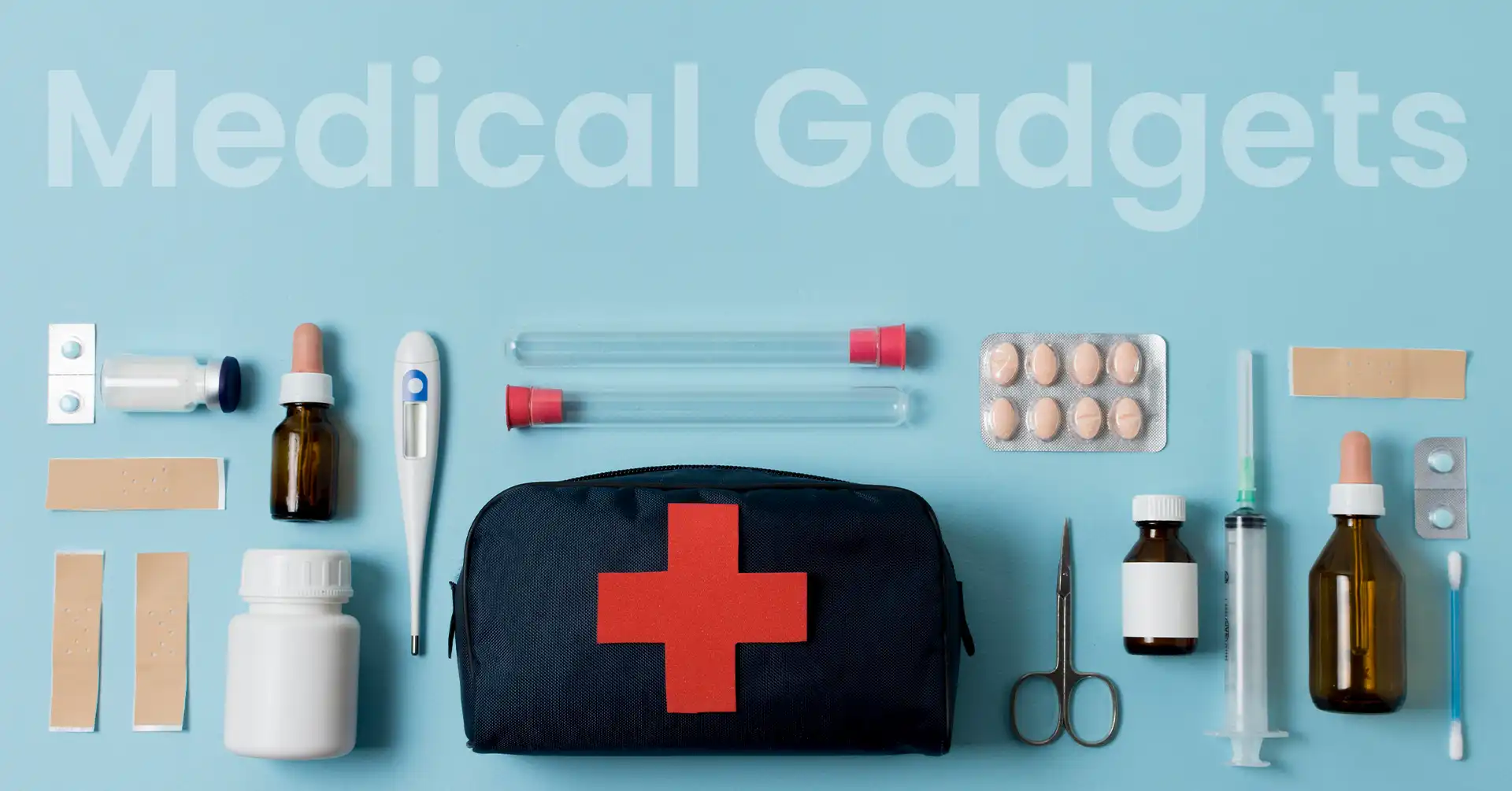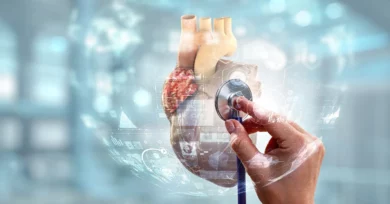Hello, my wonderful readers! In the ever-evolving healthcare landscape, medical gadgets stand at the forefront of innovation and progress. These groundbreaking devices revolutionize how medical professionals diagnose, treat, and monitor patients. From wearable technology to advanced imaging devices, medical gadgets are reshaping the future of healthcare in profound ways.
At the heart of this revolution lies the importance of medical gadgets in enhancing patient care and improving outcomes. These innovative tools empower healthcare providers with real-time data, enabling them to make more informed decisions and deliver personalized treatment plans. Whether it’s a portable ECG monitor for early detection of heart conditions or a smart insulin pump for precise diabetes management, medical gadgets are streamlining processes and transforming patient experiences.
One of the key benefits of medical gadgets is their ability to promote proactive and preventative healthcare. With the rise of wearable devices equipped with sensors and monitoring capabilities, individuals can take charge of their health like never before. From tracking vital signs to monitoring fitness levels, these gadgets empower users to make informed lifestyle choices and detect potential health issues early on.
Furthermore, medical gadgets are crucial in improving accessibility to healthcare services, particularly in remote or underserved areas. Portable diagnostic devices and telemedicine gadgets enable healthcare professionals to reach patients beyond traditional healthcare settings, bridging the gap between patients and providers.
As we delve deeper into the future of healthcare, it becomes evident that medical gadgets will continue to be indispensable tools in the arsenal of medical professionals. By harnessing the power of technology, these gadgets promise a healthier, more connected, and more efficient healthcare system for all. Join us as we explore the transformative potential of medical gadgets and their role in shaping the future of medicine.
The Best Medical Gadgets Discovered
In the ever-evolving landscape of healthcare technology, the relentless pursuit of innovation has led to the discovery of some remarkable medical gadgets. These groundbreaking devices have not only transformed the way medical professionals diagnose and treat illnesses but have also revolutionized patient care and management. Let’s delve into some of the best medical gadgets discovered, each pushing the boundaries of what’s possible in modern healthcare.
Wearable Health Monitors:
Empowering Patients with Personalized Health Insights
Wearable health monitors have emerged as a game-changer in the realm of preventive healthcare. These compact yet sophisticated gadgets, equipped with sensors and advanced monitoring capabilities, allow individuals to track various health metrics in real-time. From heart rate and blood pressure to sleep patterns and physical activity, wearable health monitors provide users with valuable insights into their overall well-being.
Leading the pack in this category are devices like the Apple Watch and Fitbit, which seamlessly integrate health monitoring features into everyday wearables. These gadgets not only track vital signs but also offer features such as ECG monitoring and fall detection, enabling users to take proactive measures to safeguard their health.
Moreover, wearable health monitors have also proven to be invaluable tools for healthcare providers, allowing them to remotely monitor patients’ health status and intervene promptly when necessary. This capability has become particularly crucial in the era of telemedicine, where remote patient monitoring plays a vital role in delivering quality care to individuals in diverse settings.
Smart Inhalers:
Revolutionizing Asthma and COPD Management
For individuals living with respiratory conditions such as asthma and COPD, adherence to medication regimens is paramount to disease management. Smart inhalers have emerged as a groundbreaking solution to this challenge, offering patients a more effective and convenient way to manage their conditions.
These inhalers are equipped with sensors that track medication usage and provide real-time feedback to both patients and healthcare providers. By monitoring inhaler usage patterns, smart inhalers help patients adhere to their prescribed treatment plans more effectively, leading to improved symptom control and better long-term outcomes.
Furthermore, smart inhalers can also identify triggers and patterns associated with exacerbations, enabling healthcare providers to tailor treatment strategies to individual patients’ needs. This proactive approach not only enhances disease management but also reduces the frequency of emergency hospital visits and improves overall quality of life for patients with respiratory conditions.
Portable Ultrasound Devices:
Bringing Imaging Capabilities to the Point of Care
Traditionally confined to hospital settings, ultrasound imaging has undergone a transformative shift with the advent of portable ultrasound devices. These compact and portable gadgets empower healthcare providers to perform high-quality ultrasound scans at the point of care, whether in a clinic, emergency room, or even a remote field setting.
Portable ultrasound devices offer numerous benefits, including rapid diagnosis, real-time imaging guidance for procedures, and enhanced patient comfort. By bringing imaging capabilities directly to the patient’s bedside, these devices enable faster decision-making and more efficient care delivery, particularly in critical or time-sensitive situations.
Moreover, portable ultrasound devices have also expanded access to imaging services in underserved areas where traditional imaging equipment may be scarce or inaccessible. This has profound implications for improving healthcare delivery in resource-limited settings and ensuring equitable access to diagnostic services for all individuals, regardless of their geographic location.
Remote Monitoring Systems:
Transforming Chronic Disease Management
Chronic diseases such as diabetes, hypertension, and heart failure require ongoing monitoring and management to prevent complications and optimize outcomes. Remote monitoring systems have emerged as indispensable tools in the management of chronic conditions, enabling healthcare providers to track patients’ health status and intervene proactively when necessary.
These systems typically consist of connected devices such as blood glucose meters, blood pressure monitors, and weight scales, which transmit data securely to healthcare providers via mobile apps or cloud-based platforms. By continuously monitoring key health metrics, remote monitoring systems enable early detection of changes in patients’ conditions and facilitate timely interventions to prevent exacerbations.
Furthermore, remote monitoring systems empower patients to take an active role in managing their health, providing them with real-time feedback and personalized guidance based on their individual health data. This not only improves patient engagement and adherence to treatment plans but also fosters a sense of empowerment and autonomy in managing chronic conditions.
Tthe discovery and development of these best medical gadgets represent significant milestones in the field of healthcare technology. From wearable health monitors to smart inhalers, portable ultrasound devices, and remote monitoring systems, these groundbreaking gadgets are transforming the way we diagnose, treat, and manage diseases. As technology continues to advance, the future holds even greater promise for medical gadgets to further enhance patient care, improve outcomes, and revolutionize healthcare delivery on a global scale.
Why Are Medical Gadgets Important?
In today’s rapidly evolving healthcare landscape, medical gadgets play a pivotal role in reshaping patient care, enhancing treatment outcomes, and advancing medical practices. Their importance stems from various factors that significantly impact healthcare delivery and patient well-being.
Precision Diagnosis and Treatment:
Medical gadgets enable healthcare professionals to diagnose diseases with unprecedented precision and accuracy. Advanced imaging devices such as MRI and CT scanners provide detailed insights into internal structures, facilitating early detection of abnormalities and guiding treatment planning. Similarly, diagnostic tools like blood glucose monitors and genetic testing kits deliver real-time data, allowing for timely interventions and personalized treatment approaches tailored to individual patient needs.
Remote Patient Monitoring:
One of the key advantages of medical gadgets is their ability to facilitate remote patient monitoring. Wearable health monitors, smart inhalers, and portable vital sign monitors enable continuous tracking of patients’ health parameters outside traditional clinical settings. This remote monitoring capability is particularly beneficial for individuals with chronic conditions, allowing healthcare providers to detect early signs of deterioration, adjust treatment plans accordingly, and intervene promptly to prevent complications.
Enhanced Patient Engagement:
Medical gadgets empower patients to take an active role in managing their health and well-being. With the rise of wearable devices and health-tracking apps, individuals can monitor their vital signs, track fitness levels, and manage chronic conditions more effectively. This increased engagement fosters a sense of ownership over one’s health and encourages healthier lifestyle choices, ultimately leading to better treatment adherence and improved outcomes.
Streamlined Healthcare Delivery:
The integration of medical gadgets into healthcare systems streamlines care delivery processes and improves efficiency. Portable diagnostic devices and telemedicine gadgets enable healthcare providers to deliver services beyond the confines of traditional clinical settings, reaching patients in remote or underserved areas. Moreover, electronic health records (EHR) systems and medical data management platforms enhance communication and collaboration among healthcare teams, ensuring seamless coordination of care and continuity across various points of service.
Cost-Effective Healthcare Solutions:
Medical gadgets offer cost-effective solutions for healthcare delivery by reducing the need for expensive and invasive procedures, minimizing hospital readmissions, and optimizing resource utilization. For example, remote monitoring systems help prevent costly complications associated with chronic diseases by enabling early intervention and proactive management. Similarly, point-of-care testing devices reduce turnaround times for diagnostic results, enabling faster decision-making and reducing overall healthcare costs.
Research and Innovation Catalyst:
Medical gadgets drive innovation and research in the healthcare industry by providing tools for data collection, analysis, and experimentation. From clinical trials to medical device development, these gadgets enable researchers and innovators to explore new treatment modalities, refine existing technologies, and pioneer novel approaches to patient care. They facilitate data-driven insights and evidence-based practices, driving continuous improvement and advancement in healthcare delivery.
The importance of medical gadgets in healthcare cannot be overstated. From precision diagnosis and remote patient monitoring to enhanced patient engagement and streamlined care delivery, these innovative devices are indispensable tools in the modern healthcare ecosystem. As technology continues to evolve, the role of medical gadgets will only grow in significance, driving further improvements in patient outcomes, healthcare accessibility, and overall quality of care.
Conclusion | Medical Gadgets
The future of healthcare undeniably revolves around the pivotal role of medical gadgets. These innovative devices have already transformed patient care, diagnosis, and treatment, and their importance will only continue to grow. With advancements in technology, medical gadgets are poised to revolutionize healthcare delivery, making it more personalized, efficient, and accessible than ever before.
Medical gadgets are significant because they can empower healthcare providers and patients alike. From precision diagnostics to remote monitoring, these gadgets enable timely interventions, personalized treatment plans, and proactive management of chronic conditions. Moreover, they foster patient engagement, encouraging individuals to manage their health and well-being actively.
Looking ahead, the future of medical gadgets holds immense promise. With ongoing research and innovation, we can expect to see even more advanced devices that push the boundaries of what’s possible in healthcare. Wearable health monitors with enhanced capabilities, smart implants for targeted drug delivery, and AI-powered diagnostic tools are just a glimpse of what lies ahead.
As medical gadgets evolve, they will play a crucial role in addressing healthcare challenges globally. From improving access to healthcare services in remote and underserved areas to reducing healthcare disparities and optimizing resource utilization, these devices will drive positive change and innovation across the healthcare ecosystem.
The future of medical gadgets is bright, promising a healthcare landscape that is more efficient, effective, and patient-centered. By harnessing the power of technology and innovation, medical gadgets will continue to shape the future of medicine, making healthcare more accessible, affordable, and equitable for all.
Also Read:
Aiotechnical.com Health & Beauty: AI, IoT and Reviving Your Life






